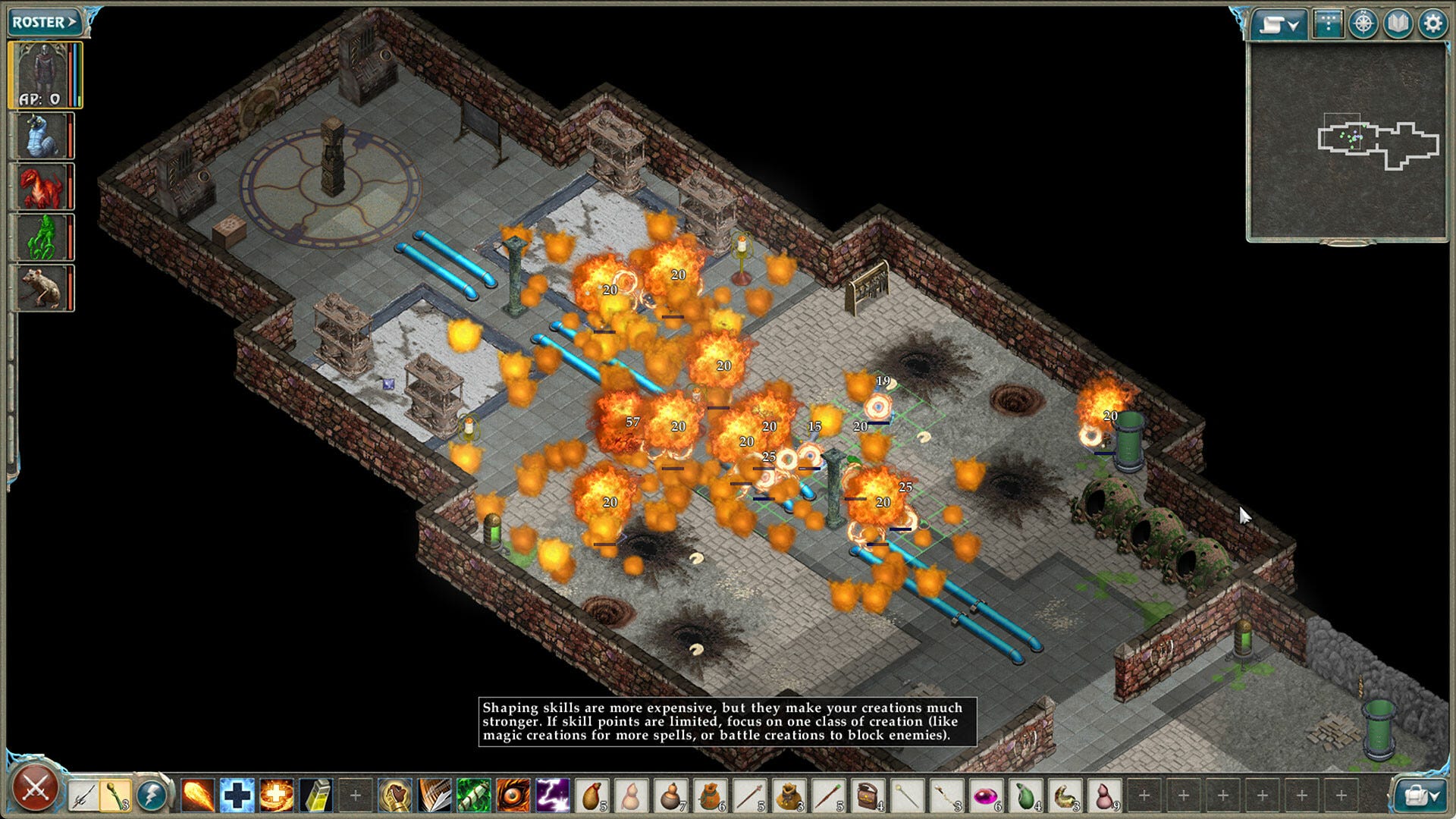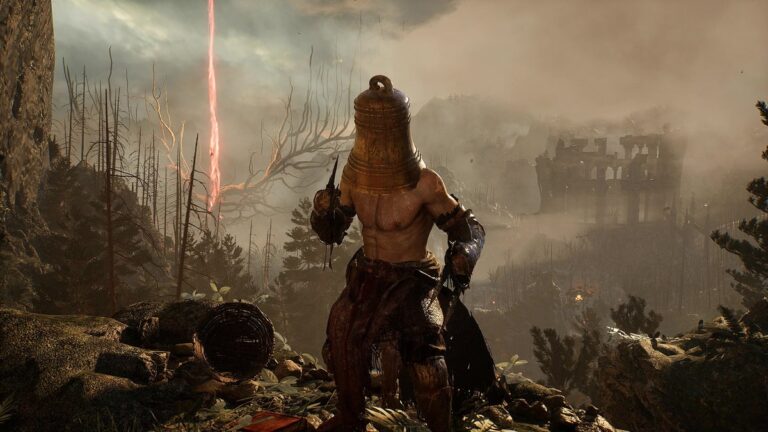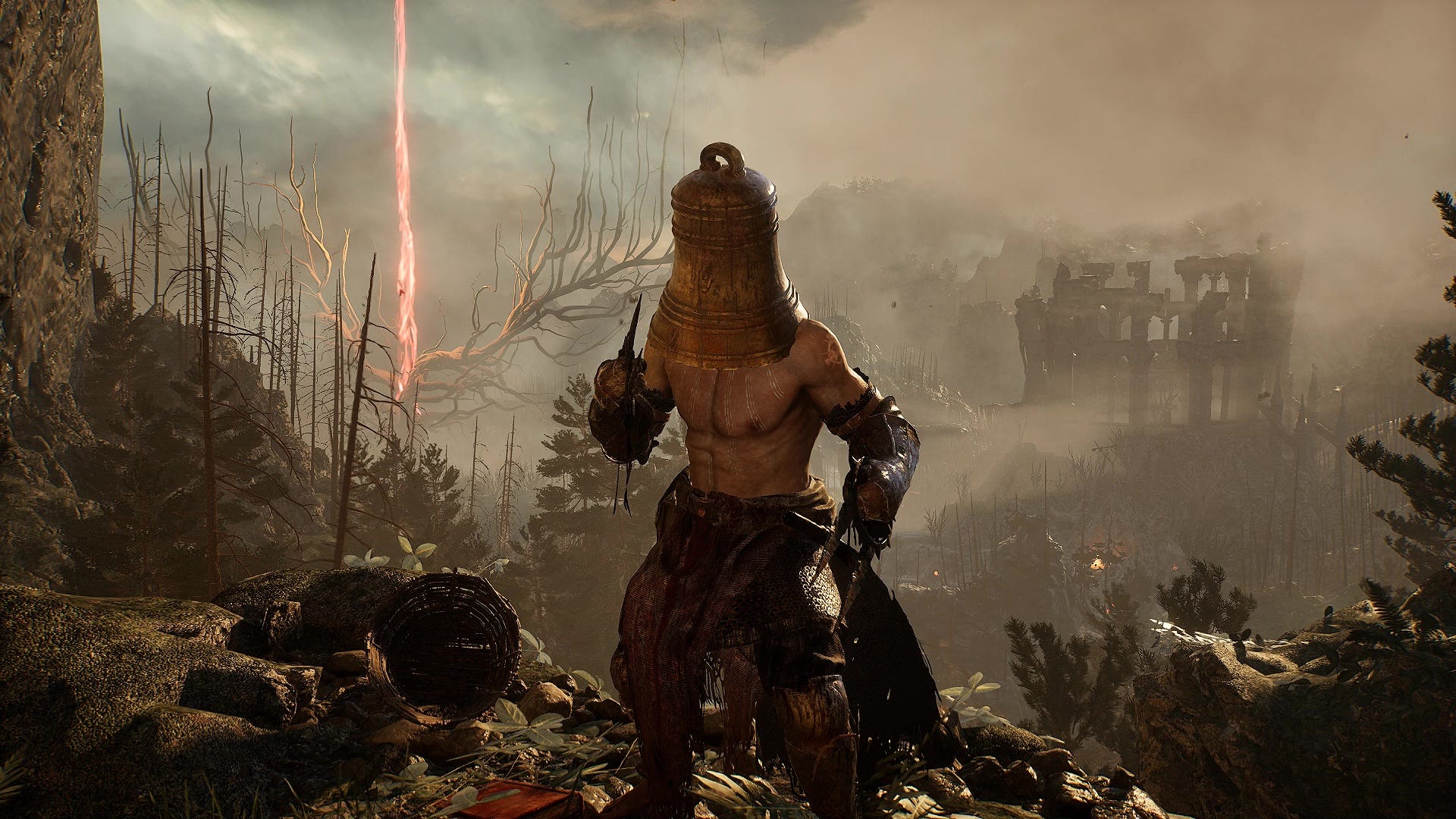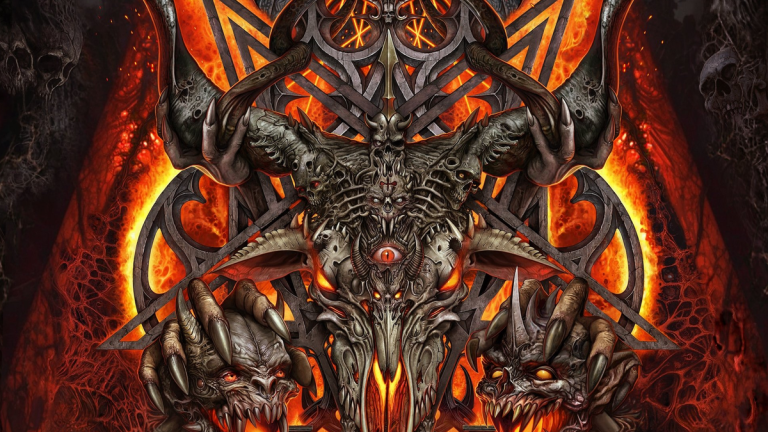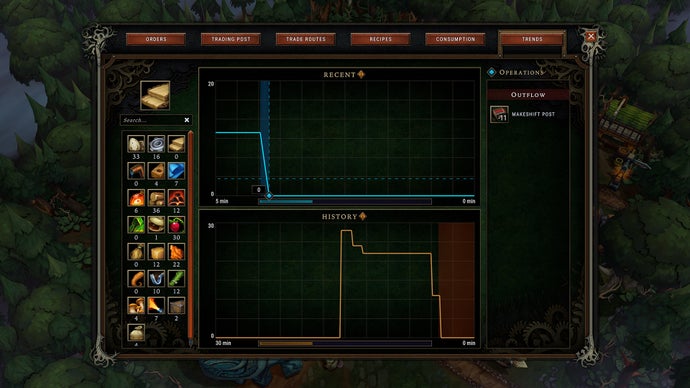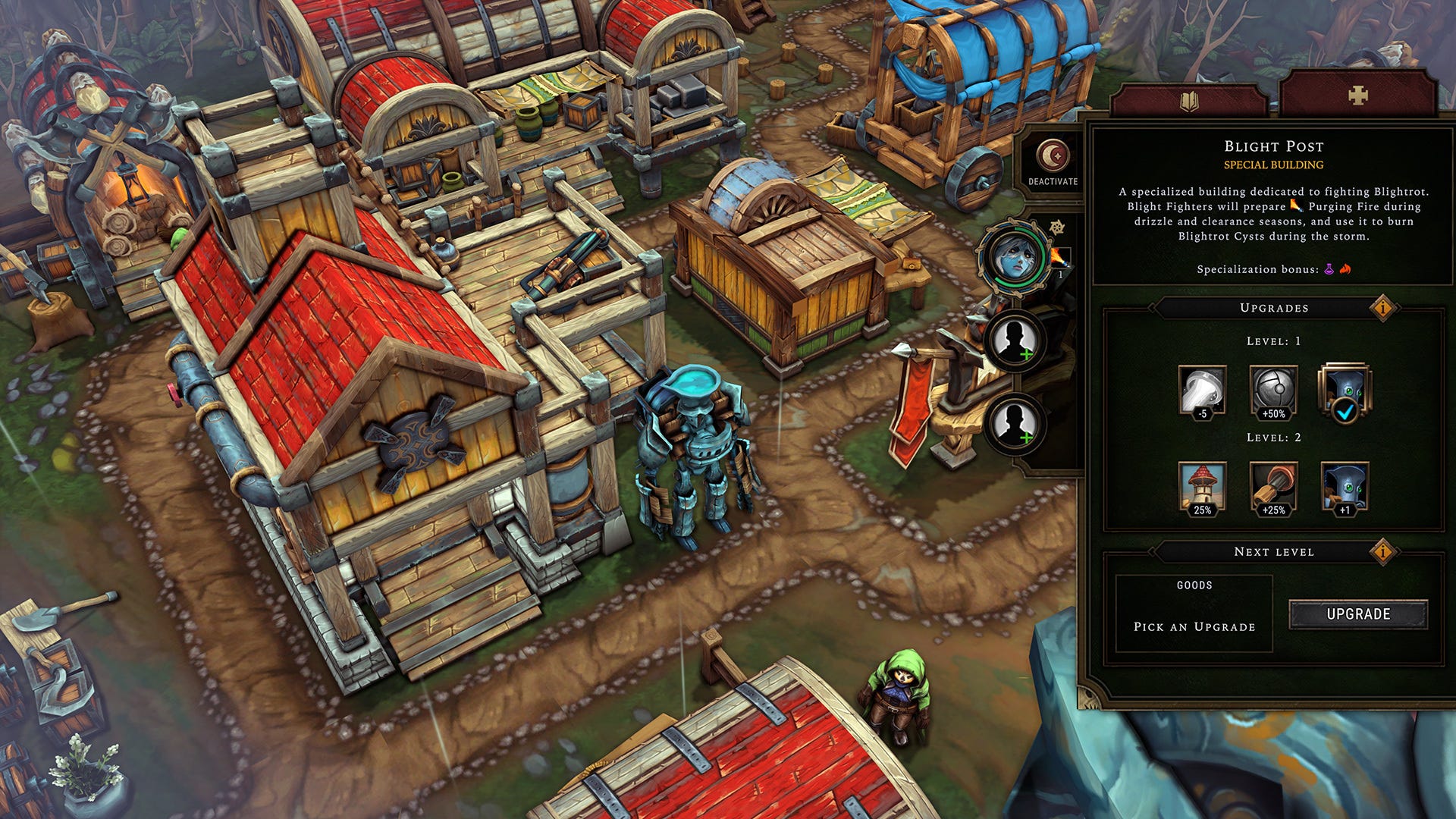“I really fight being envious of Larian,” says indie RPG designer Jeff Vogel. “Or any other big company. Because everyone’s scared, everyone has hard times, and the grass is always greener on the other side of the fence. I’ve had a very successful life where I’ve earned enough and gotten enough stability. And so I’m really happy with my choices. It would be awesome if I could write a big hit that everyone played, or had a big team and could do a big thing. But you know, I’m content. I’ve had enough people play my games.”
Like Larian, Vogel makes acclaimed Ultima-style RPGs. Unlike Larian, he makes them in his spare bedroom, with the assistance of his wife, Mariann Krizsan. As we speak, it’s 2am in Seattle, but that doesn’t bother Vogel. Almost all of his programming happens between noon and 6pm, or from midnight to 4am, to the accompaniment of Comedy Central on a nearby telly. To his credit, Vogel still gets dressed for the occasion. “I could work in my pyjamas or in a robe if I wanted,” he says. “But for some reason, I’ve just always been able to concentrate better with clothes on.”
Of the 30 years Jeff Vogel has toiled away as a game designer, just four months were spent at a AAA games studio. In 1999, he worked in a temp position for Microsoft as a designer on Mechwarrior 4. It didn’t work out, and he was fired. “They decided to swap me out for someone a bit less independent-minded for the long slog of implementing the game,” he says. “It was the right choice for everyone. I learned a huge amount about how to develop a game properly, which I immediately put to work making the first Geneforge.”
Today, Vogel is working on the remaster of Geneforge 2. It’s a dense and atmospheric western RPG with shades of early Fallout. You play as a Shaper, a wizard with the ability to turn gooey essence into disposable, subservient life – high fantasy scorpions or velociraptors who can step in between you and your enemies, like ethically-complicated Pokémon. Geneforge 2 – Infestation was Kickstarted in March to the tune of $76,777 by just 1,549 backers. That’s an average of almost $50 each, which tells you Vogel’s games are deeply adored by a passionate few. To them, his independent-mindedness is a virtue, not a flaw. They find that the Geneforge games support their independence, too.
“One of the trademark qualities of Geneforge is that you can learn about this guy on the other side of the island, who’s the bad guy,” Vogel says. “And you walk across the island and finally meet him, and he explains where he’s coming from. And if you go, ‘Actually, no, this guy kind of has a point,’ you can just switch sides and still get a perfectly satisfying ending.” These are games in which every ending is achievable without ever throwing a fireball or firing a dart. “I love putting choices in my games,” Vogel says. “Even if most people won’t take them, because players appreciate knowing they had a choice.”
When the first Geneforge came out, it was unheard of for RPG developers to support pacifist playthroughs. “No one had ever done anything like it before, that I know of,” Vogel says. “Even now, Baldur’s Gate 3 is a great game, but you still gotta hack your way through the thing from beginning to end.”
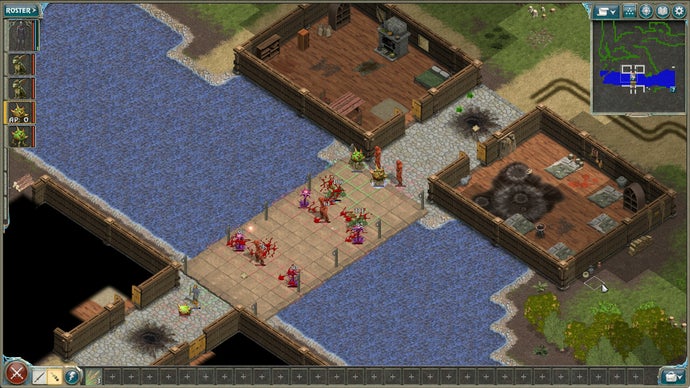
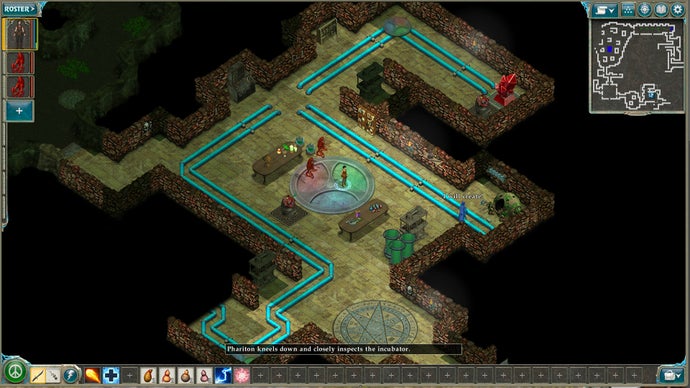
It’s undeniably fascinating to look at the histories of Larian Studios and Vogel’s Spiderweb Software in parallel. Larian launched its debut game, a Commander & Conquer ripoff named The L.E.D. Wars, in 1997 to no notice. At around the same time, Vogel had struck gold with the conclusion of his first fantasy trilogy, named Exile. He had earned enough to hire a team and build a company. “I thought about it a long time,” Vogel says. “And finally, I was like, ‘I don’t wanna do that. I like sitting alone in my room surrounded by weird nerd stuff, and making my oddball little low-budget fantasies. It’s very important to kill your ego.”
By contrast, Larian fought to make RPGs at scale. Teetering on the edge of bankruptcy and irrelevance for almost two decades, the developer finally pulled off their transformation into a AAA studio against the odds – and only thanks to the stubbornness of CEO Swen Vincke. Had Vogel taken the same route, it’s overwhelmingly likely that Spiderweb Software would no longer exist today.
“Larian had so many years where they could just barely keep the lights on,” Vogel says. “At any moment, with a flip of the coin, they’re out of business. I knew that if I followed that path, there would be periods of time where I’d be kept awake all night wondering if my business was gonna survive. I’ve made less money, I’ve gotten less fame. But in return, I’ve had a great deal more tranquillity in my life. Sitting here at age 53, looking back, that’s been valuable.”
There’s something especially appealing about the slowburn sustainability of Vogel’s career right now – at a time when the games industry at large has switched tracks from boom to bust. Embracer has reportedly cancelled a new Deus Ex – and many who worked on it will now be competing for new roles with an estimated 6,000 others who lost games jobs this January. The RPS layoffs tag is horribly stacked with recent news stories of games companies realigning, restructuring, and otherwise slashing frightening numbers of roles.
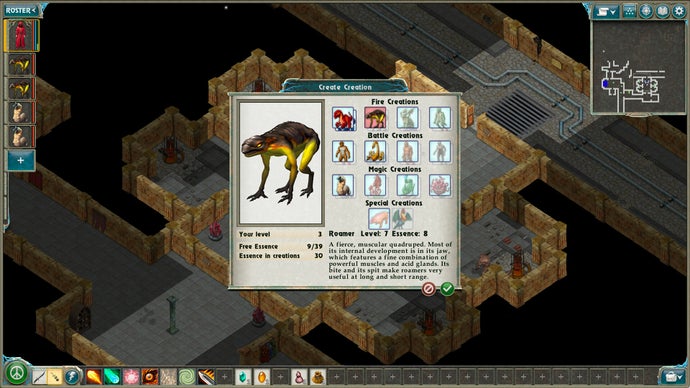
It’s the result of an all-or-nothing approach to business that leaves untold stress and even ruined lives in its wake. Whereas Vogel has trundled along for three decades without sacrificing anybody to get a game done or to stay afloat. That said, it’s not always romantic to be, as Vogel puts it, a bottom feeder. “I grab the little bits of meat that the big fish cannot bother themselves to eat,” he says. “Sustainability is tricky. Even in the best possible time it’s a cutthroat, bloodthirsty business.” He has survived by being relentlessly pragmatic – reusing assets without shame and learning to be happy with ‘good enough’.
If you read Vogel’s Substack newsletter – also called The Bottom Feeder – you’ll feel his tenacity, tempered by realism, on the page. You’ll also feel it in his games, which can’t help but be a reflection of him. Geneforge 2 wastes no time in tearing apart the lofty ideology of its Shapers – taking you to a failed colony where casually-created creatures run loose, and bowls of living matter sit unattended, like strange putty under the sun.
“I’ve been fascinated with politics since I was 14,” Vogel says. “Even when it’s really painful to read the news, I still do it. As I get older, I see that everything’s complicated. There are no solutions, only trade-offs. You just muddle through and pick the least bad thing.” It’s a worldview that’s become only more pronounced in his recent non-remaster projects, like the Queen’s Wish series – “a political muddle”. And it’s a flavour he suspects might be too sharp for some.
“The Queen’s Wish games are nowhere near as popular as the older games,” he says. “Every once in a while we’ll get an email like, ‘This game is really cool, because it’s not talking down to me. This is what life is like.’ But Geneforge I did a long time ago, when I was younger and had more idealism and less cynicism. And so you really can hack out a happy ending for yourself. I really want in these games for you to be able to feel you got away clean.”
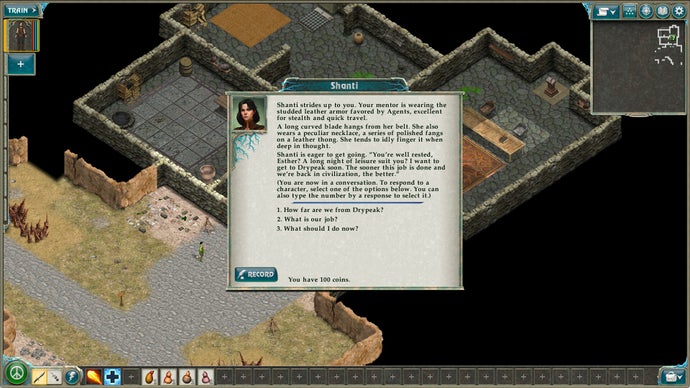
There are a wide variety of happy endings available in Geneforge 2, in fact, and Vogel isn’t messing with those. But he has added new zones and large quest lines that expand on the Geneforge world and its lore, while respecting the shape of the original story. “A lot of these games I spent a year and a half writing,” he says. “And honestly, that’s not quite enough time. It gets the game off the ground, but it doesn’t make it shine. An extra year and a half for each of those games makes them really good, and that’s a lot of what I wanna do.”
Before retirement, Vogel intends to bring the Queen’s Wish series to a meaningful conclusion. But mostly, he’ll be remastering past work. Of the 18 original games in his rear-view mirror, there are six candidates that are “really cool, full of good design, and just don’t work anymore”. So he hopes to spruce them up and enjoy a further trickle of back catalogue sales into old age.
Some of Vogel’s friends, fellow designers and artists, can’t understand his choice to revisit old work. “They talk to me like I just said that I have a fatal disease,” he says. “And I don’t look at it that way.” Vogel is a huge fan of Billy Joel, “like all right-thinking people”. And like his idol, he’s content to tour the hits.
Especially when Larian has just introduced a whole new generation to the joys of Ultima-influenced RPGs. “There’s a lot of people who are gonna play Baldur’s Gate 3,” Vogel says. “And a few of them are gonna come to papa.”
